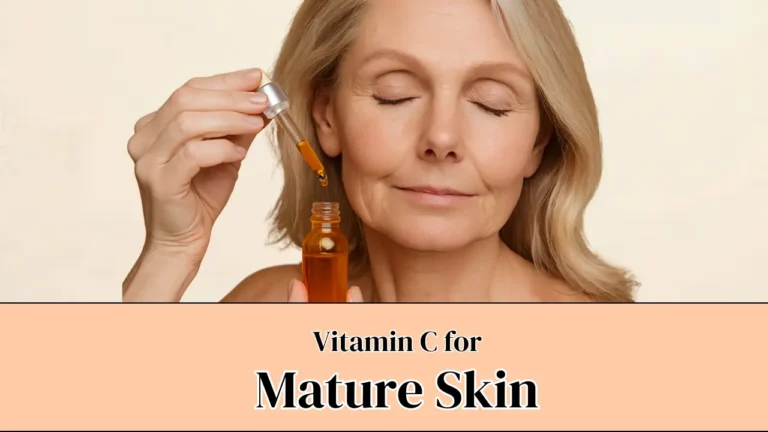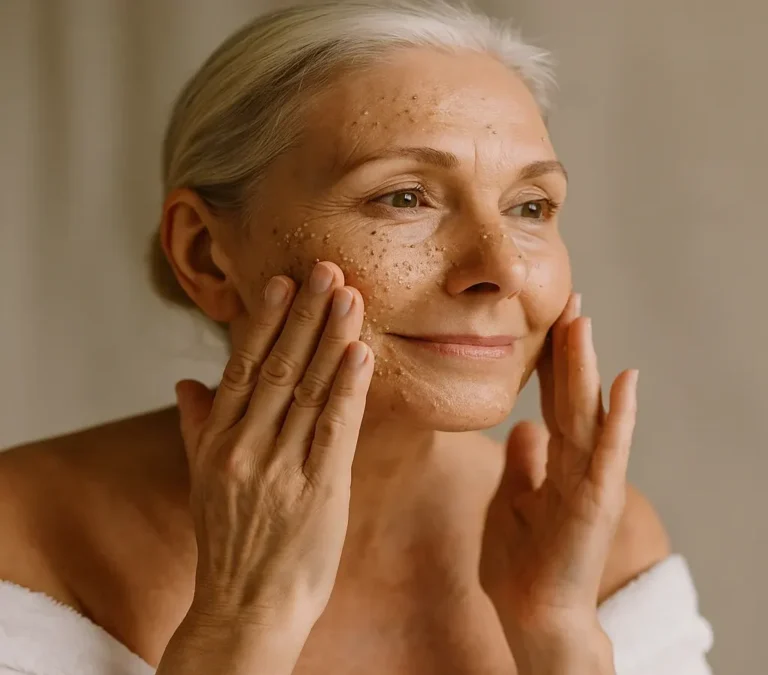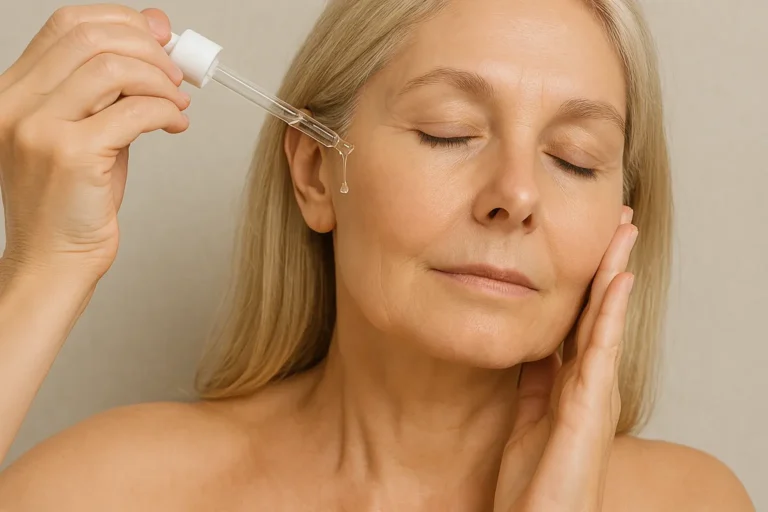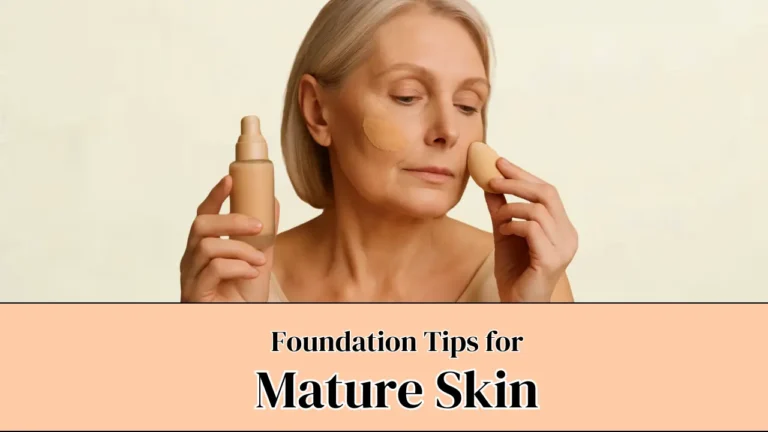Retinol for Mature Skin: The Ultimate 2025 Guide to Youthful Radiance

As we get older, our skin starts to reveal the passage of time. You might notice fine lines, wrinkles, dark spots, and a bit of sagging. These changes are completely normal, but with the right skincare routine, you can definitely manage them.
Retinol has long been a go-to ingredient for tackling aging skin. Dermatologists have relied on it for years, and for good reason—it really delivers results.
In this all-encompassing guide, you’ll find everything you need to know about using retinol for mature skin. It’s straightforward, optimized for search engines, and packed with valuable information.
What is Retinol?
Retinol is a form of vitamin A. It’s found in many over-the-counter skincare products. It’s a type of retinoid, which includes
- Retinoic acid (Tretinoin): Prescription-strength
- Retinol: OTC strength
- Retinaldehyde: Milder than retinol
Retinol penetrates deep into the skin. It boosts cell turnover. Stimulates collagen. And smooths skin texture. It’s used in both acne treatment and anti-aging routines. You can purchase it over the counter or consult a doctor for prescription versions.
Why Mature Skin Benefits from Retinol
As we get older, our skin doesn’t renew itself as quickly. Dead skin cells hang around longer, leading to dullness and rough texture. Retinol speeds up cell turnover, helping to reveal fresher, brighter skin.
Collagen and elastin—the proteins that keep skin firm and elastic—naturally decline with age. Retinol helps stimulate collagen production, which softens lines and firms sagging areas over time.
Mature skin is more prone to uneven tone, dark spots, and enlarged pores. Retinol gently fades pigmentation, improves clarity, and smooths out texture, making skin appear more youthful and even-toned.
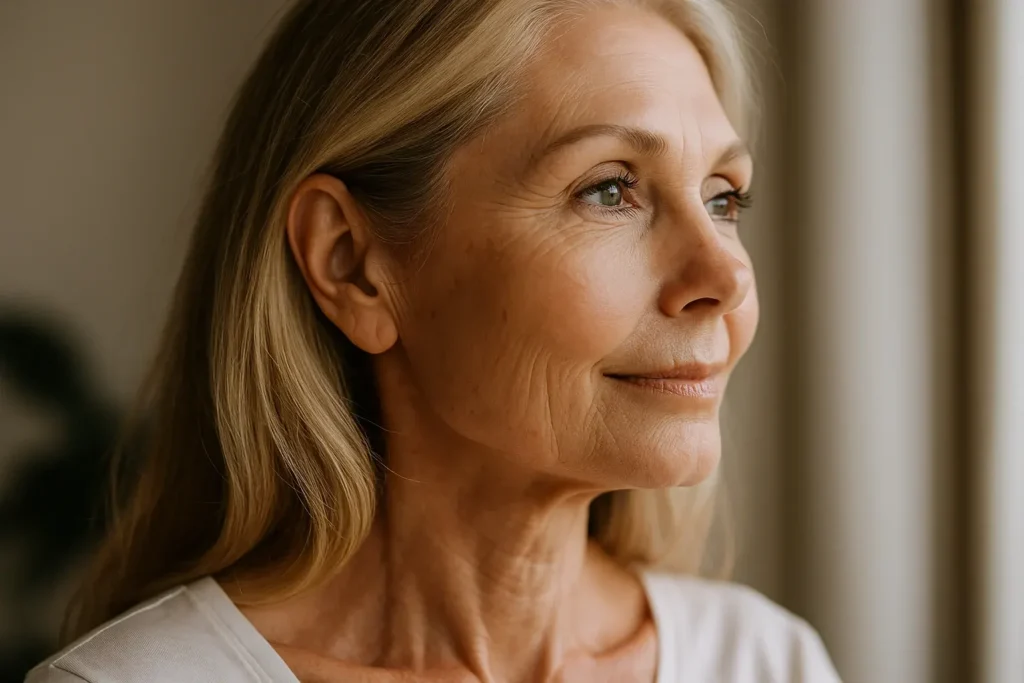
Benefits of Retinol for Mature Skin
- Stimulates Collagen Production: Retinol encourages your skin to produce more collagen. Over time, this helps reduce deep lines and restore firmness, especially around cheeks and jawline.
- Smooths Fine Lines and Wrinkles: It softens the appearance of crow’s feet, forehead lines, and laugh lines. With consistent use, skin texture becomes more refined.
- Brightens Skin Tone: Retinol gently fades age spots and sun damage. It also gives your complexion a more even, radiant glow.
- Improves Skin Texture: You’ll notice less flakiness and rough patches. Retinol smooths and revitalizes dull skin.
- Unclogs Pores: It reduces clogged pores and prevents blackheads. Clearer pores also mean fewer breakouts for those with aging, acne-prone skin.
How to Use Retinol for Mature Skin
- Start Slowly: Start with a low-strength retinol. Apply it twice a week at night. Gradually build up as your skin adjusts.
- Night-Only Application: Retinol is sensitive to light. It breaks down in the sun. Always apply at night to protect its effectiveness.
- Pea-Sized Amount: Use a pea-sized amount for your entire face. More product won’t speed results—it just increases risk of irritation.
- Moisturize Generously: Apply moisturizer right after retinol. This soothes dryness and helps form a protective barrier. For sensitive skin, apply moisturizer before and after (“sandwich method”).
- Always Wear Sunscreen: Retinol increases sun sensitivity. Use SPF 30+ every morning to protect against UV damage and maintain results.
Step-by-Step Retinol Routine for Mature Skin
- Cleanse: Use a gentle cleanser. Pat skin dry.
- Wait 10-15 minutes: Apply retinol to dry skin.
- Apply Pea-Sized Retinol: Smooth over face. Avoid eye and mouth area.
- Moisturize: Use a fragrance-free cream.
- SPF in Morning: Always apply sunscreen after retinol nights.
Frequency Guide:
| Week | Usage |
|---|---|
| 1-2 | Once or twice/week |
| 3-4 | Every other night |
| 5+ | Nightly (if tolerated) |
Who Should Avoid Retinol?
Retinol is not suitable for everyone. People who are pregnant or breastfeeding should avoid it, as it may affect hormone-sensitive systems. It is also not ideal for individuals with severe eczema or rosacea, as it can cause further irritation. Those currently using strong exfoliants or prescription acne treatments should also steer clear to avoid oversensitizing the skin.
If you’re considering retinol but are on other medications that affect the skin, it’s best to consult your dermatologist first. This is especially important if you’re planning cosmetic treatments like laser resurfacing, microneedling, or chemical peels, as retinol can make the skin more reactive. Also, if you’ve had strong reactions to skincare in the past, professional guidance will ensure you use retinol safely and effectively.
Alternatives to Retinol (for Sensitive Skin)
Bakuchiol
A natural, plant-derived ingredient. Offers similar results to retinol—like reducing fine lines and pigmentation—without irritation.
Niacinamide
A form of Vitamin B3. It strengthens the skin barrier, calms redness, reduces pore size, and boosts glow.
Peptides
Short chains of amino acids. Help signal the skin to produce more collagen, improving firmness and reducing wrinkles.
Hyaluronic Acid
A hydrating powerhouse. It doesn’t fight wrinkles directly, but plumps the skin and boosts other treatments.
Final Verdict
Retinol is often hailed as the gold standard for anyone looking to refresh and protect mature skin. Its remarkable ability to boost collagen production, smooth out fine lines, brighten your complexion, and improve overall skin health explains why dermatologists keep recommending it. That said, reaping the rewards of retinol requires a bit of patience and consistency.
Mature skin thrives on gentle care and a slow, steady approach—trying to rush things can lead to irritation. So, stick to a well-structured routine, keep your skin well-moisturized, and don’t forget your sunscreen! When used correctly, retinol can make your skin look firmer, more radiant, and youthful, no matter your age. Embrace the journey—your skin has the potential to glow with the right time and care.

